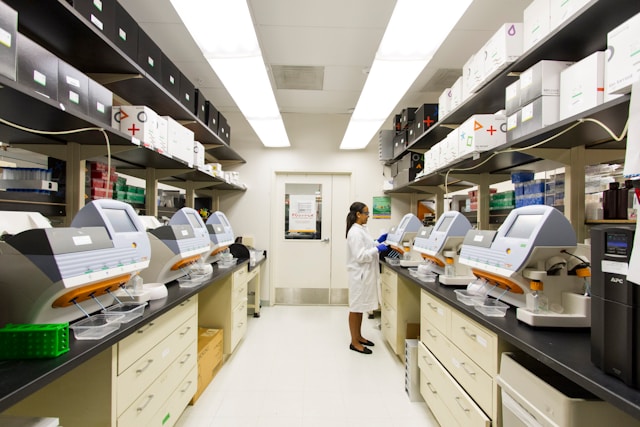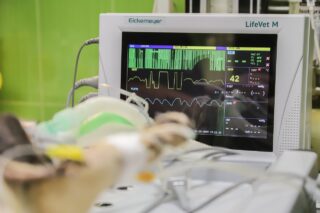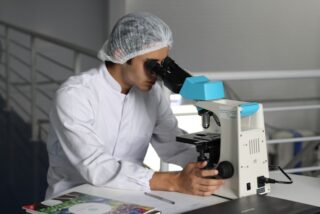
Liver cancer is one of the most difficult diseases to treat, but a new non-invasive procedure is giving patients a second chance. This treatment, called histotripsy, uses ultrasound waves to destroy tumors without surgery or radiation. It is still a new method, but early results show great success. For patients who have limited treatment options, this could be a life-changing development.
What Is Histotripsy?
Histotripsy is a non-invasive technology that uses focused ultrasound waves to break down cancerous tissue. Unlike traditional treatments, it does not use radiation or heat. Instead, the ultrasound waves create tiny microbubbles inside the tumor. These bubbles vibrate at high speed and eventually destroy the cancer cells.
One of the biggest benefits of histotripsy is that it does not damage surrounding healthy tissue. This makes it a safer option for treating tumors in delicate organs like the liver. The procedure is also quick, taking only 15 minutes to an hour. In clinical trials, it had a 95% success rate, making it one of the most promising new cancer treatments.
How Histotripsy Is Changing Cancer Treatment
Traditionally, treating liver cancer requires chemotherapy, radiation, or surgery. These methods can be painful and risky, especially for patients with advanced cancer. Histotripsy provides a less invasive option with minimal side effects.
Patients who receive this treatment often combine it with other therapies. Doctors may still recommend chemotherapy or immunotherapy to target remaining cancer cells. However, histotripsy helps by shrinking tumors and making them easier to manage. In some cases, it even allows for surgical removal of cancer that was previously inoperable.
Since the procedure does not require incisions, recovery is much faster than with traditional surgery. Patients report little to no pain, making it a better option for those with weakened immune systems.
Who Can Benefit from Histotripsy?
Histotripsy is currently used for liver cancer, but it may also work for other types of tumors. Right now, it is most effective for tumors that have spread to the liver from other cancers, such as:
- Colon cancer
- Pancreatic cancer
- Breast cancer
- Rectal cancer
Doctors are also exploring its use for primary liver cancer, which means tumors that start in the liver rather than spreading from another organ. As research continues, histotripsy could become a standard treatment for many types of cancer.
A Real Patient’s Story: Finding Hope
One of the first patients to receive histotripsy was Chrissy Martinez, a mother from New Jersey. She was diagnosed with stage four pancreatic cancer, which had spread to her liver. Initially, doctors told her that there was nothing they could do. They recommended palliative care, which is treatment meant to ease pain rather than cure the disease.
Chrissy refused to give up. She kept searching for a doctor who could help and finally found Dr. Wolfgang and Dr. Huitt at NYU. They told her about histotripsy and gave her hope. After receiving the treatment, her liver tumor was destroyed, and doctors were able to remove the remaining cancer with surgery.
Today, Chrissy feels strong and optimistic. She is looking forward to spending time with her family and celebrating life’s big moments.
Why Histotripsy Has Fewer Side Effects
One of the main advantages of histotripsy is that it has minimal side effects. Traditional cancer treatments, like chemotherapy and radiation, often come with nausea, fatigue, and a weakened immune system. Surgery carries risks of infection, bleeding, and long recovery times.
Histotripsy avoids these problems because it:
- Does not require cutting into the body
- Does not use heat or radiation
- Targets only the tumor, leaving healthy tissue untouched
Because of this, it is especially useful for patients who are already weakened by chemotherapy. For people like Chrissy, who had already gone through months of harsh treatment, histotripsy was a safer and more comfortable option.
What’s Next for Histotripsy?
Right now, histotripsy is mainly used for liver tumors, but doctors are working on ways to expand its use. Research is already underway to see if it can treat kidney tumors, and in the future, it may be possible to use histotripsy for:
- Pancreatic cancer
- Breast cancer
- Prostate cancer
If successful, histotripsy could change the way doctors treat many types of cancer. Instead of relying on radiation and chemotherapy, patients may have a safer, less painful option.
The Importance of Finding the Right Doctors
One of the biggest lessons from Chrissy’s story is the importance of finding doctors who are willing to explore new treatments. Not all hospitals have access to histotripsy yet, so many patients may not even know this option exists.
If you or someone you know is diagnosed with liver cancer, it is worth asking about histotripsy as a possible treatment. While it may not be right for every case, it could be a life-changing option for some patients.
The Future of Cancer Treatment
Histotripsy represents a new era in cancer treatment. It offers hope to patients who previously had few options. While more research is needed, the early results are extremely promising.
The idea that cancer can be treated without surgery, without radiation, and without major side effects is groundbreaking. As this technology develops, it could become a game-changer in the fight against cancer.
For now, patients like Chrissy are proving that histotripsy can make a real difference—giving people a second chance at life.






